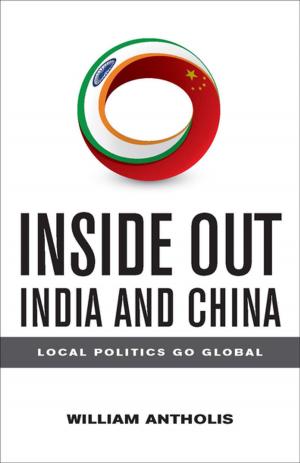Global Cities
A Short History
Nonfiction, Social & Cultural Studies, Political Science, Politics, Regional Planning, City Planning & Urban Development, Social Science, Sociology, Urban| Author: | Greg Clark | ISBN: | 9780815728924 |
| Publisher: | Brookings Institution Press | Publication: | November 29, 2016 |
| Imprint: | Brookings Institution Press | Language: | English |
| Author: | Greg Clark |
| ISBN: | 9780815728924 |
| Publisher: | Brookings Institution Press |
| Publication: | November 29, 2016 |
| Imprint: | Brookings Institution Press |
| Language: | English |
Why have some cities become great global urban centers, and what cities will be future leaders?
From Athens and Rome in ancient times to New York and Singapore today, a handful of cities have stood out as centers of global economic, military, or political power. In the twenty-first century, the number of truly global cities is greater than ever before, reflecting the globalization of both economic and political power.
In Global Cities: A Short History, Greg Clark, an internationally renowned British urbanist, examines the enduring forces-such as trade, migration, war, and technology-that have enabled some cities to emerge from the pack into global leadership. Much more than a historical review, Clark’s book looks to the future, examining the trends that are transforming cities around the world as well as the new challenges all global cities, increasingly, will face.
Which cities will be the global leaders of tomorrow? What are the common issues and opportunities they will face? What kinds of leadership can make these cities competitive and resilient? Clark offers answers to these and similar questions in a book that will be of interest to anyone who lives in or is affected by the world’s great urban areas.
Why have some cities become great global urban centers, and what cities will be future leaders?
From Athens and Rome in ancient times to New York and Singapore today, a handful of cities have stood out as centers of global economic, military, or political power. In the twenty-first century, the number of truly global cities is greater than ever before, reflecting the globalization of both economic and political power.
In Global Cities: A Short History, Greg Clark, an internationally renowned British urbanist, examines the enduring forces-such as trade, migration, war, and technology-that have enabled some cities to emerge from the pack into global leadership. Much more than a historical review, Clark’s book looks to the future, examining the trends that are transforming cities around the world as well as the new challenges all global cities, increasingly, will face.
Which cities will be the global leaders of tomorrow? What are the common issues and opportunities they will face? What kinds of leadership can make these cities competitive and resilient? Clark offers answers to these and similar questions in a book that will be of interest to anyone who lives in or is affected by the world’s great urban areas.















